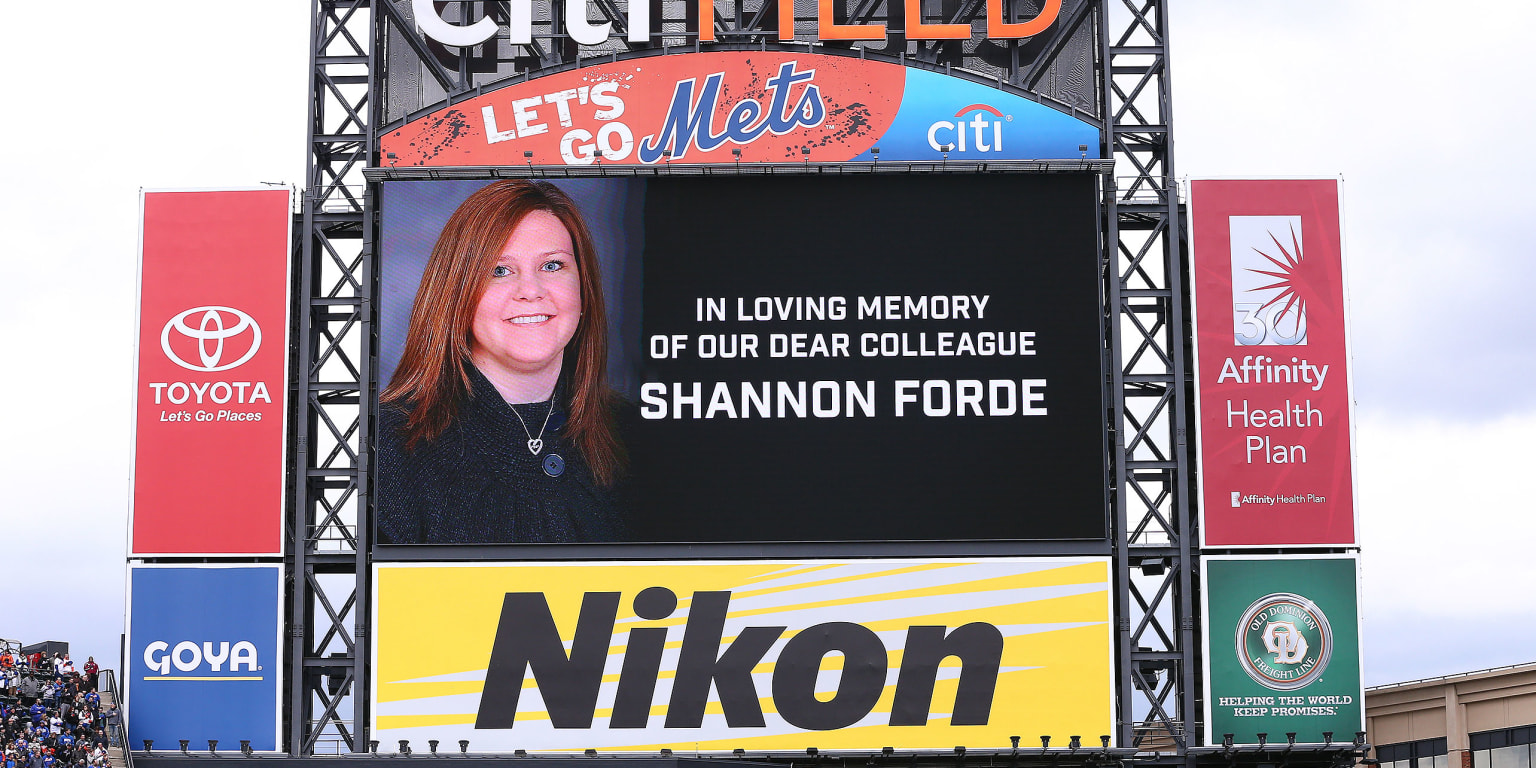NEW YORK — When he was younger, Nicky Forde used to call David Wright his best friend.
Forde and his sister, Kendall, enjoyed unusual privilege as the children of Shannon Forde, the Mets’ director of public relations at that time. As children, they rubbed elbows with big leaguers, and most notably with Wright, who had grown close to the family. Shannon was like a sister to Wright, the kids a niece and nephew, which is what made Wright’s perspective so difficult at a March 2016 memorial for her.
Standing at a lectern to deliver a remembrance of Shannon Forde, who had died of breast cancer, Wright glanced to his right and saw Nicky and Kendall staring back at him.
“I’ll always remember that feeling,” Wright said this week, “having to look her children in the eye, and offering my condolences and saying I’m sorry that you’re not going to get to grow up with a tremendous woman, a tremendous mother, a tremendous role model. [I remember] feeling this overwhelming sense of sadness, because they’re not going to get to know their mother the way that I’ll always remember and appreciate their mother.”
Throughout Wright’s career, he garnered attention for being one of the most accomplished players the Mets had ever produced. He received credit for helping teammates, for his work as the captain, for his efforts in the community. For those reasons and others, the Mets will retire his No. 5 in a July 19 ceremony at Citi Field.
There, the assembled fans, friends, and former teammates and coaches will shower Wright with even more adulation. But some of the most impactful things Wright has done, he has done quietly. A lot of that had to do with Shannon.
“She was special to him,” said Debbe Dalton, Shannon’s mother. “And I think he was special to her, too.”
When Wright earned his first call-up to Shea Stadium in 2004, he did not yet understand everything that went into being a Major League Baseball player. On a regular basis, he found himself being pulled in this direction and that, wanting to accommodate everyone but not understanding which tasks were important and which he could safely ignore. Shannon became that beacon for him, often easing Wright’s mind with something as simple as a glance or a nod.
As the years progressed, Shannon became a confidant for Wright, helping him with things as simple as restaurant recommendations, as personal as dating advice or as complex as how to deal with the media and fame. When Wright got married in 2013, Shannon and her husband flew to California for the ceremony. Their kids tagged along.
“It was like he was her younger brother that she never had,” Dalton said.
From the moment Shannon was diagnosed with breast cancer in 2012, Wright began doing everything within his power to help her. He attended every event in her name, including a December fundraiser to aid in her treatment. (In a stroke of fate, it was early the next morning that Wright agreed on the eight-year contract extension that made him a Met for life.)
When Shannon died in March 2016, Wright flew up from Port St. Lucie, Fla., to attend her memorial service. A year later he drove to Little Ferry, N.J. to be at a Little League field dedication in her name. Years after Shannon’s passing, Wright has tried to maintain a connection with the family, recently calling Dalton to offer condolences after her husband died.
“It shows what kind of guy he is,” Mets vice president of alumni relations Jay Horwitz said. “All of this was done behind the scenes — no publicity, no nothing.”
Horwitz, who knows Wright well, considers it telling which types of friends he holds dear. One is Dave Racaniello, the Mets’ longtime bullpen catcher and one of his closest confidants. Over the years, Wright’s circle has come to include bench players, team staffers and clubhouse attendants, but rarely household names.
Shannon typified the type of friend that he treasures.
“I’m drawn to people that I sense are trustworthy and along the values and the lines that I was raised by my parents — those types that early on, I sensed shared similar values,” Wright said. “When you look somebody in the eye and there’s no motive in what they’re asking or talking about, you can sense that it’s more genuine. You’re rooting for each other’s success.”
